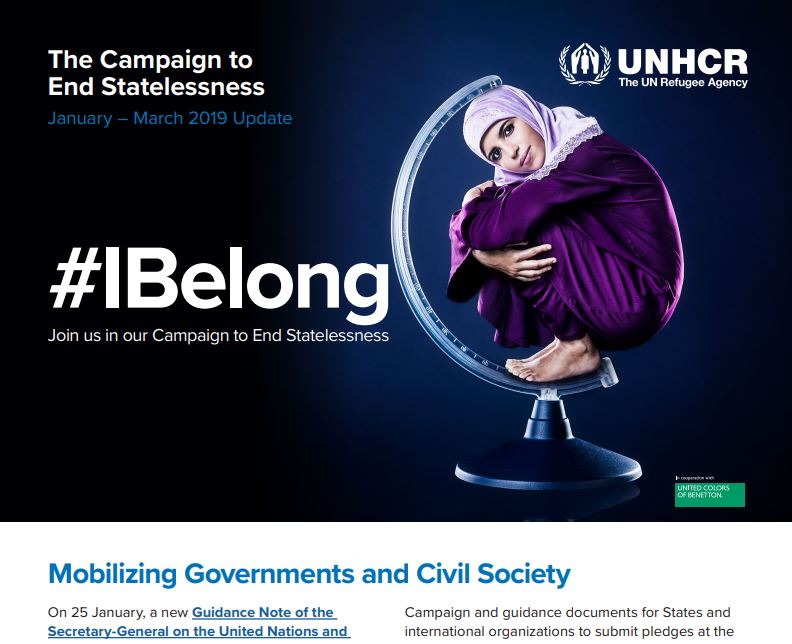Publications
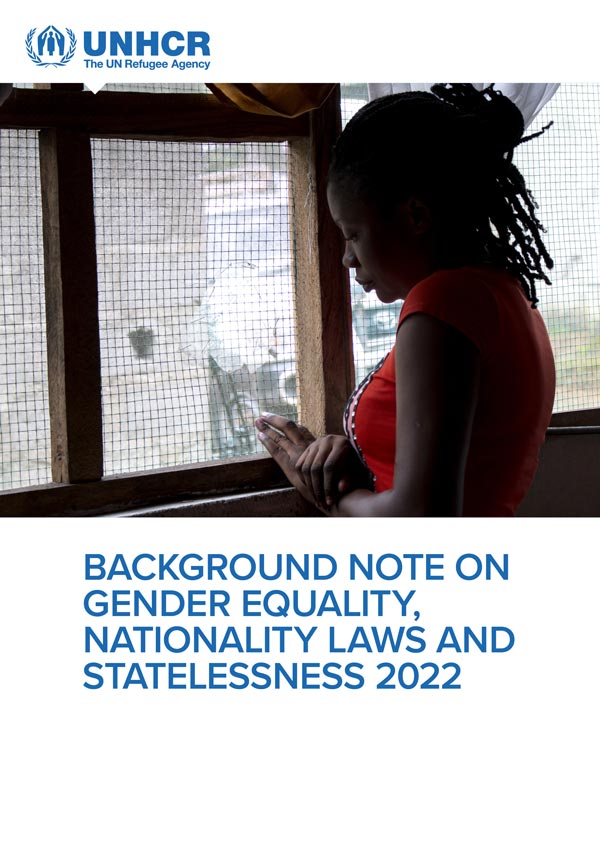
Background Note on Gender Equality, Nationality Laws and Statelessness 2022
Nationality laws which do not grant women equality with men in conferring nationality to their children are a cause of statelessness and a concern for UNHCR under its mandate to prevent and reduce statelessness. This publication provides the most up-to-date information available to UNHCR on gender equality in nationality laws related to conferral of nationality to children, as of March 2022.
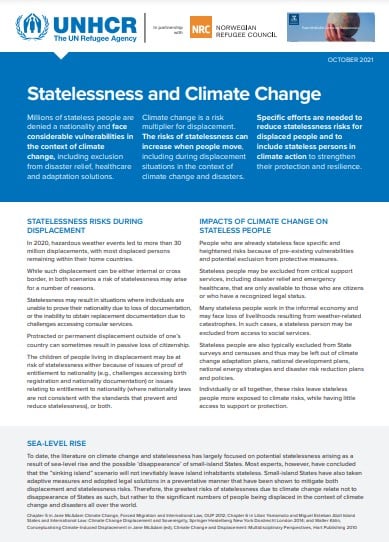
Statelessness and Climate Change Factsheet
Millions of stateless people are denied a nationality and face considerable vulnerabilities in the context of climate change, including exclusion from disaster relief, healthcare and adaptation solutions. Climate change is a risk multiplier for displacement. The risks of statelessness can increase when people move, including during displacement situations in the context of climate change and disasters. Specific efforts are needed to reduce statelessness risks for displaced people and to include stateless persons in climate action to strengthen their protection and resilience.
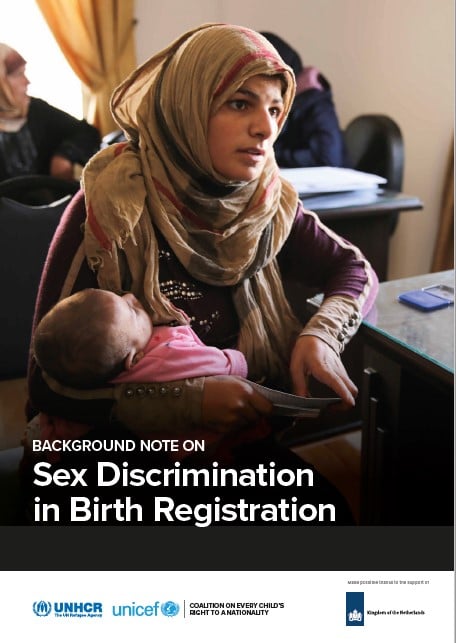
Sex Discrimination in Birth Registration
Birth registration is a fundamental right and establishes a legal identity for life. It can enable children to effectively access and enjoy other rights such as education and healthcare and can prevent risks of statelessness. Yet, despite its importance, the births of millions of children around the world are not registered. Sex discrimination is a known cause of existing barriers to universal birth registration. This report explores sex discrimination in birth registration practices and provides recommendations on how these can be addressed.
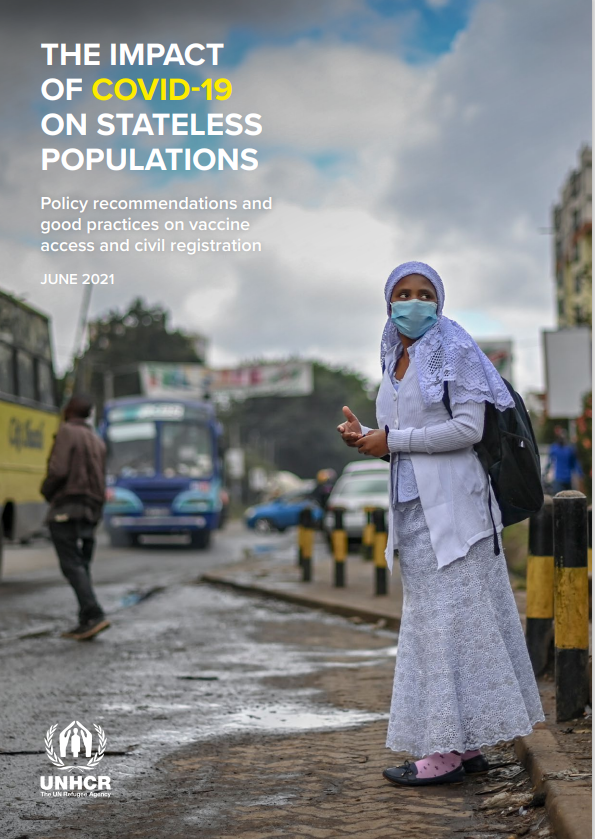
The Impact of COVID-19 on Stateless Populations: Policy Recommendations and Good Practices on vaccine access and civil registration – June 2021
UNHCR, the UN Refugee Agency, is warning today that many of the world’s stateless people may miss out on vaccinations as a result of their lack of citizenship or proof of identity. In its latest report on The Impact of Covid-19 on Stateless Populations, the agency notes that the majority of national immunization plans do not provide clarity on their coverage of stateless people.
Campaign Reports
High-Level Segment on Statelessness: Results and Highlights
During the High Level Segment, States highlighted achievements and pledged further goals in the #IBelong Campaign. Agencies, regional and national organizations also committed to finding an end to statelessness,
totaling some 360 pledges overall.
I am Here, I Belong
Stateless children are born into a world in which they will face a lifetime of discrimination; their status profoundly affects their ability to learn and grow, and to fulfill their ambitions and dreams for the future.
Gender Discrimination and Childhood Statelessness
Gender discrimination in nationality laws is a root cause of childhood statelessness. Gender-discriminatory policies and practices also contribute to statelessness among children.
Special Report: Ending Statelessness Within 10 Years
Stateless people are found in all parts of the globe — Asia, Africa, the Middle East, Europe and the Americas—entire communities, new-born babies, children, couples and older people.
This Is Our Home
Discrimination, exclusion and persecution most commonly describe the existence of stateless minorities. More than 75% of the world’s known stateless populations belong to minority groups.
Global Action Plan to End Statelessness: 2014 – 2024
In a world comprised of States, the problem of statelessness remains a glaring anomaly with devastating impacts on the lives of millions of people around the world who live without any nationality.
Campaign Updates
Calendars
For a general overview on upcoming treaty body sessions that may be of interest to statelessness matters please visit here.
For deadlines to UPR submissions please click here.























